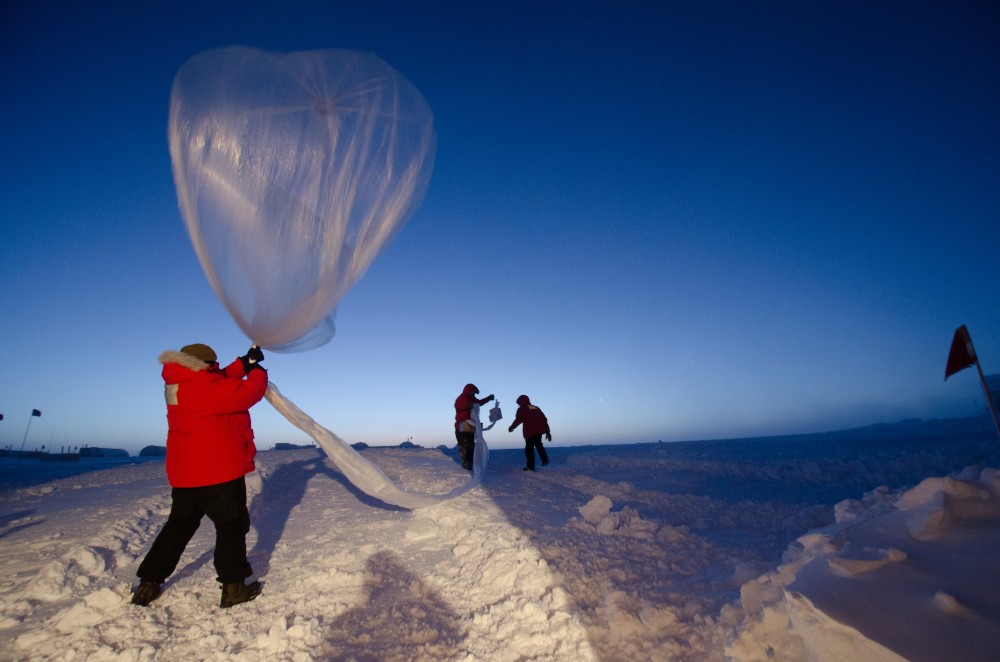
We are a reader-supported education publication. When you buy through links on our site, we may earn an affiliate commission to help us keep providing content.
Picking a college major requires careful consideration. Students will want to select a program that feeds their passions and interests and sets them up for success in a lucrative career.
Science, technology, engineering, and mathematics (STEM) programs offer various degree options. To sweeten the deal, you could earn an average of $100,900 annually, compared to $55,260 for non-STEM majors.
Suppose you’ve decided to pursue one of the science majors in college. There are several to choose from, but perhaps you’ll fancy one of these six programs.

1. Biology
Biology majors delve into the science of living organisms, from their origin to their function and markers. Students typically spend time in the classroom and labs — a conducive environment for exploratory research and analysis.
According to the U.S. Bureau of Labor Statistics (BLS), 72% of biology majors work in health care, life sciences and business management. Further, 58% of students pursue a master’s degree or higher in biology or a related discipline.
2. Chemistry
Perhaps you’ve wanted to develop a cure for cancer or analyze crime scene evidence to catch criminals. If so, then a chemistry degree might be fitting.
Chemistry majors study a challenging curriculum that comprises the periodic table elements and fundamental properties of matter. Students usually spend equal amounts of time in the classroom and lab conducting experiments.
Upon graduation, many pursue an advanced degree to become a doctor, pharmacist, researcher, or water management specialist, amongst other roles.

3. Physics
Science fiction enthusiasts and skillful mathematicians may wish to leverage their interests in physics. Physics majors study the universe, seeking answers to how the world works.
Those enrolled in physics programs will begin their academic journey with foundational learning of Newton’s laws of motion and kinematics. Many students spend time researching in a laboratory.
These programs integrate the principles of biology, chemistry, and astronomy, while a strong background in calculus is typically needed.
Like most STEM fields, a lack of gender diversity is common in physics. The American Institute of Physics (AIP) states that less than 25% of undergraduates with bachelor’s degrees in physics are female — up from about 10% in 1970 with a ways to go.
4. Environmental Science
Environmental science has grown tremendously with increasing awareness surrounding climate change and global environmental issues. In 2020, over 9,300 environmental science degrees were conferred.
Environmental science curriculums cover topics such as:
- Natural resource conservation
- Soil ecology
- Sustainability
- Ecological restoration
- Renewable energy
- Climate studies
Additionally, students might take courses that merge natural sciences with social science and the humanities, including psychology, ethics, economics and political science.
The environmental field has a projected 8% employment growth in the coming decade with several excellent career paths. For instance, you might become a park ranger to protect animals and ecosystems. Park rangers apply their background in environmental science and criminal justice as they work to conserve our national parks.
5. Marine Biology
Have you ever dreamed of working with sea lions and dolphins at an aquarium? Maybe scuba diving through coral reefs is one of your favorite hobbies.
Marine biology is ideal for students who want to learn about aquatic ecosystems and species and develop solutions to some of the world’s most pressing oceanic problems — pollution, habitat loss, endangered species, etc.
Marine biology majors set students up for a broad spectrum of careers, such as research biologists, aquatic scientists and field technicians, microbiologists, marine science program coordinators, policymakers and university professors.
Graduates with marine biology degrees often pursue advanced studies and work in the field, laboratories, government agencies, or private entities.
It can be challenging to obtain a career in marine sciences, so students should take advantage of internship opportunities throughout college. Networking also proves helpful for acquiring work after graduation, especially since professional connections help fill 85% of jobs, not job boards.

6. Atmospheric Sciences
Atmospheric sciences could be considered a subfield of environmental science. Texas A&M University defines the degree program as studying the impacts of weather and predictability, air quality, and how climate impacts the changing planet.
For instance, glacier thickness has shrunk 60 feet since 1980 due to rising temperatures, while carbon dioxide has increased 25% since 1958 and 40% since the Industrial Revolution.
Students in atmospheric sciences programs often take courses in meteorology, physics, chemistry, and climate studies covering the following:
- Hurricanes and tornadoes
- Cloud formations
- Air pollution and ozone
- Global warming
- Ice ages
- Seasonal weather systems
With a degree in atmospheric sciences, graduates can pursue a master’s and doctoral degree and work for government agencies, in research fields, military, broadcast networks, and private businesses, such as technology development companies.
Consider Studying One of the Science Majors in College
Students pursuing science majors in college have several opportunities upon graduation. If you’ve always wanted an investigative career to apply your innate curiousness and problem-solving skills, one of these science degrees may be right for you.
latest in learning!
Get the latest updates in learning, teaching and everything in between! Whether you're a student or an educator, we offer the inspiration you need to fuel your classroom experience.









